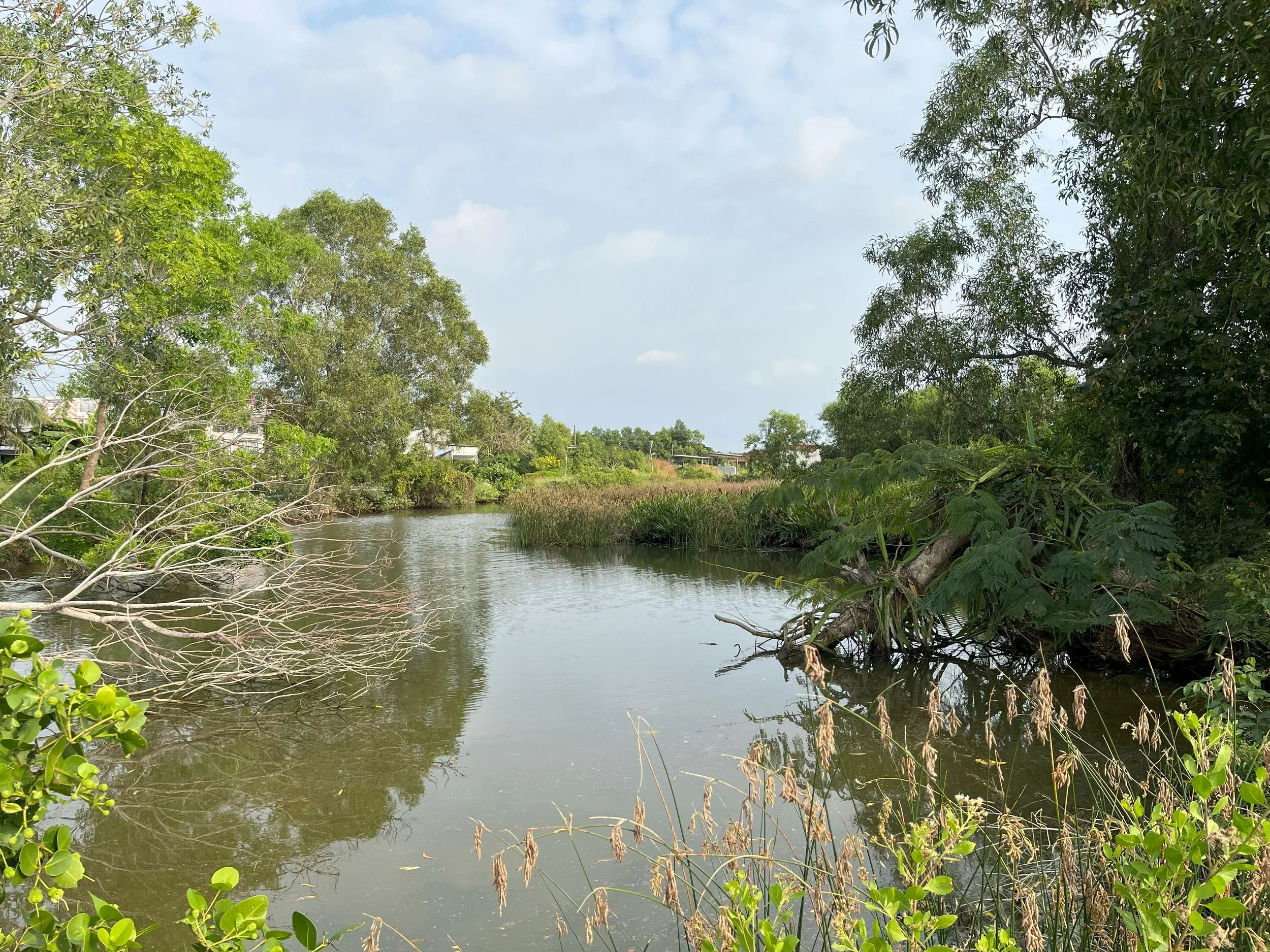From the Research team* from RMIT University, Vietnam: Our research on sustainability and welfare in Vietnamese shrimp farms has reached a significant milestone. With data collection and cleaning now complete, we have entered the crucial phase of analysis and reporting. This study draws on survey data from 210 shrimp farmers operating across a range of farming systems, from super-intensive to extensive practices, including those integrated within mangrove forests. By examining these diverse models, we aim to identify key trends in sustainability and welfare, providing valuable insights to guide future research and inform policy recommendations
Field research in the Mekong Delta
The fieldwork was conducted in collaboration with RMIT Vietnam and Can Tho University. Data collection took place across four key shrimp-farming provinces in the Mekong Delta - Bac Lieu, Kien Giang, Soc Trang, and Ca Mau. With the support of local aquaculture officers, surveyed farmers were randomly assigned to different farming system categories – this ensured a representative sample of the region’s diverse practices.
In the data collection procedure, direct engagement with shrimp farm owners was crucial for understanding their farming practices, sustainability challenges, and welfare concerns. These discussions offered valuable firsthand insights into the realities of shrimp farming, highlighted operational constraints as well as efforts to enhance environmental and economic sustainability.
The survey team interviewed shrimp farmers directly at the local People’s Committee, Farmer’s Association, and the shrimp farms
Striving for a sustainable future in Vietnam’s shrimp industry
In 2022, Vietnam ranked among the world’s top three shrimp exporters, with black tiger shrimp as a primary product and a growing focus on white-leg shrimp farming. Despite this success, the industry faces significant sustainability challenges, including water quality management, antibiotic resistance, mangrove deforestation, and labor vulnerabilities - all exacerbated by the uncertainties of climate change.
To address these pressing issues, the Vietnamese government has introduced key policies, such as Decision 79/QD-TTg and Decision 985/QD-TTg, aimed at promoting sustainable shrimp farming in the Mekong Delta by 2030. These efforts align with the country’s ambitious goal of achieving USD 10 billion in shrimp exports while ensuring environmental and social responsibility within the sector.
Different levels of intensification in shrimp farming in the Mekong Delta, Vietnam
Welfare and sustainability: preliminary findings
Our preliminary findings reveal the intricate relationship and trade-offs between the pillars of sustainability and shrimp welfare across different farming systems. Extensive farming systems are often characterized by lower stocking densities and more natural rearing conditions, enabling shrimp to thrive in a more ecologically balanced environment. In contrast, intensive and semi-intensive systems typically prioritize productivity, which can increase disease susceptibility and stress for shrimp. As stocking densities rise, shrimp have less space to move, leading to reduced oxygen levels, higher waste accumulation, and greater pathogen transmission. These conditions ultimately increase the risk of shrimp to experiencing poor welfare if the systems are not well managed. However, we will conduct a more comprehensive data analysis to understand more on the trade-offs including other factors than stocking density.
Our upcoming research will focus on the relationships between farming practices, economic viability, and sustainability outcomes. These findings aim to go beyond academic contributions by offering practical insights for policymakers, industry stakeholders, and shrimp farmers striving for a more sustainable and welfare-conscious aquaculture industry in Vietnam.
Stay tuned as we continue to uncover the crucial connections between sustainability and welfare in Vietnamese shrimp farming!
*The research team include: Pham Thi Anh Ngoc, PhD (Researcher, Wageningen Social & Economic Research), Phan Thanh Chung, PhD (Lecturer, RMIT University, Vietnam), Thuy To, MSc (Research Assistant, RMIT University, Vietnam) and Simao Zacarias, PhD (Postdoctoral Research Fellow, University of Stirling)









